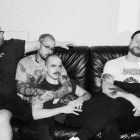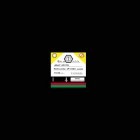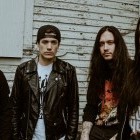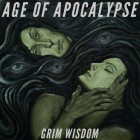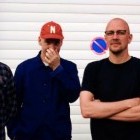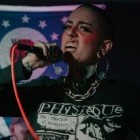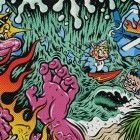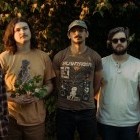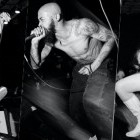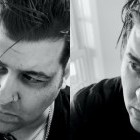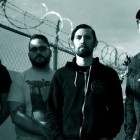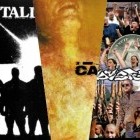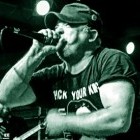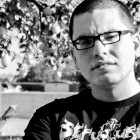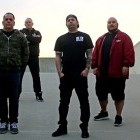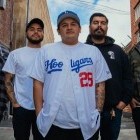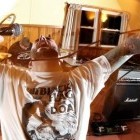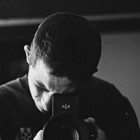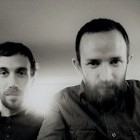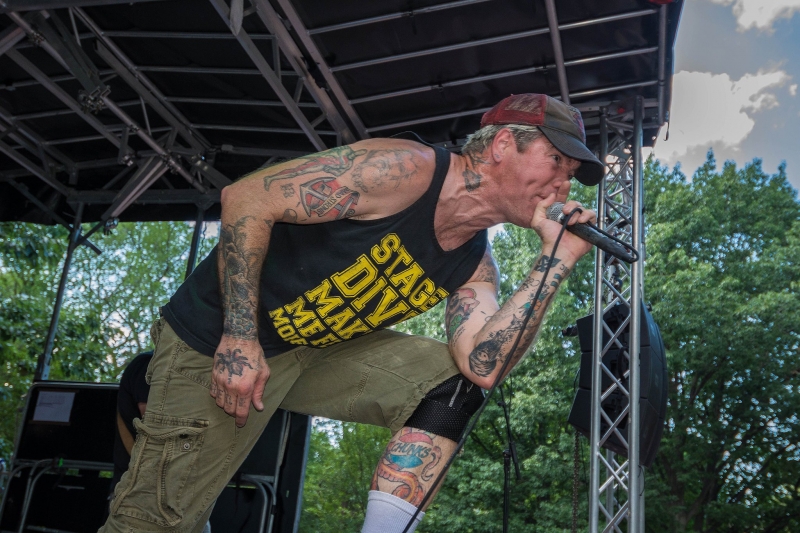
Back around 1989 or so, Token Entry entered my life. I was 14 and still figuring out what kind of hardcore stuff truly appealed to me. A friend named Tim Alford gave me a mixtape with a bunch of hardcore groups on it, and Token Entry was one of the ones that really stuck a nerve with me. Since then, I've been a big fan and wear their band shirt with pride.
Token Entry made three studio albums during their time together, and though they split up in the early '90s, they reunite for special performances from time to time. The band's vocalist was/is Timmy Chunks, a fellow NYC—Los Angeles transplant who currently plays guitar and sings in Let Rage! I recently had the pleasure of becoming friends with Timmy and when I brought up the idea of doing an interview, he was down for it.
So, here is the conversation I had with him on Oct. 27, 2017 at North Hollywood Diner in Los Angeles.
I know you’re a fellow Queens native, but where exactly did you grow up in the borough?
I grew up in Flushing, in an Irish Catholic family. I had seven brothers and sisters. It was a 2-bedroom house, so, yeah… The neighborhood was filled with kids in the same age group as us. Within a 2-block radius, there were probably 40 kids [laughs]. Growing up in the ‘70s, there was obviously no Internet or cell phones, so you had to go out and occupy yourself. You had to go out to find and meet your friends. That was a good thing because it made you leave your house and experience things.
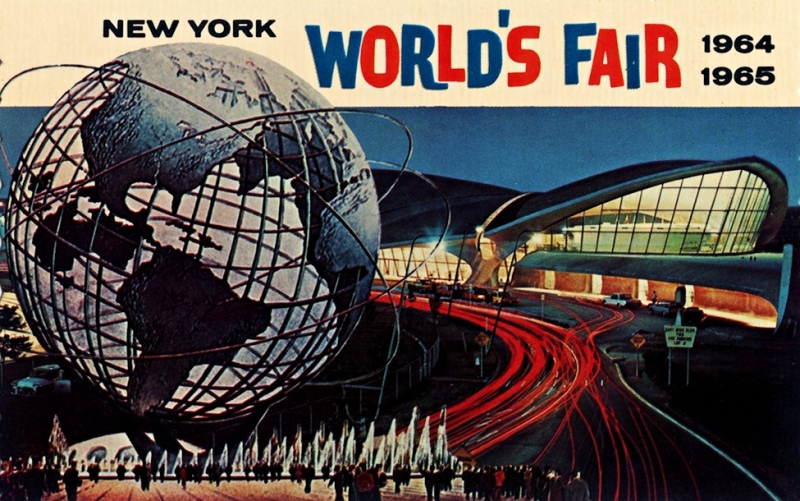
What did your father do for a living?
My father worked for the phone company. My mom also worked, so the older kids watched the younger ones [laughs]. There were eight mouths to feed, so when the younger kids were old enough to start going to school, my mom had to work because my dad didn’t make enough at the phone company, which is understandable.
So, when did music enter your life? I’m sure it was a great escape as a kid.
The first record I remember putting on was Songs from the Wood by Jethro Tull. It was one of my older brother’s records. That record was awesome! I’m sixth of eight in my family, so the early musical influence came from my older siblings. Led Zeppelin, The Who, Blue Oyster Cult, Rolling Stones… all of that classic stuff. Then Columbia House had the tape collection thing, and forget it… I almost bankrupted my family ordering stuff on that thing [laughs]. I got in so much trouble.
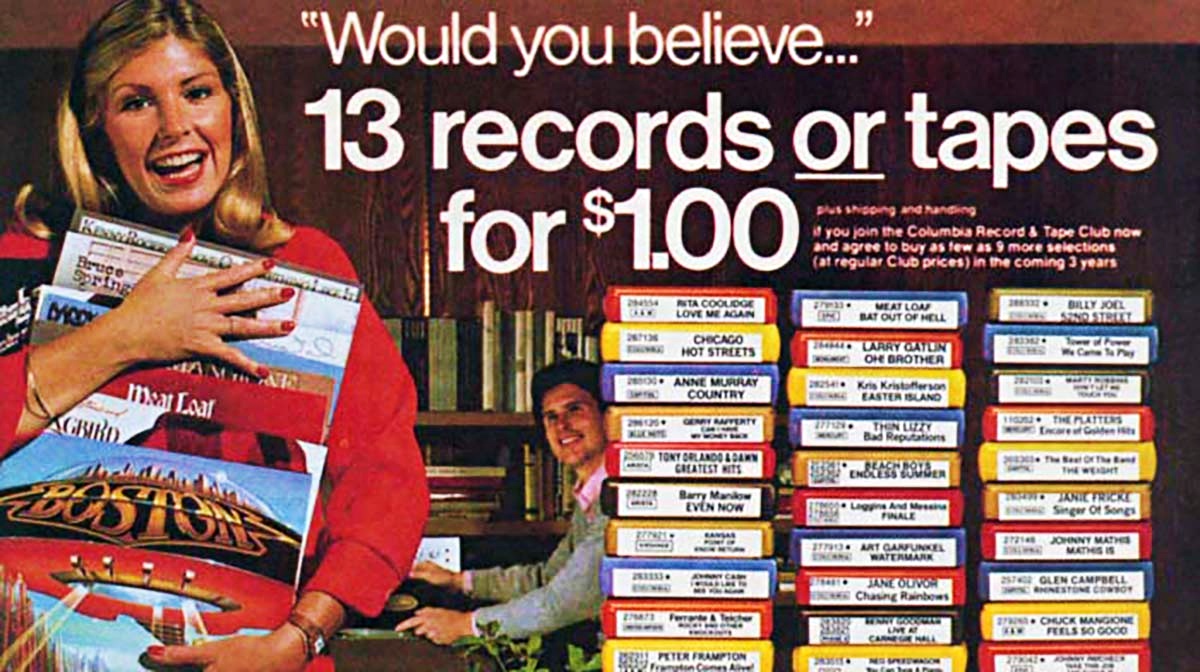
When did the harder stuff come into the picture?
Well, punk was everywhere in the late ‘70s. It was all over the news in NYC. It was definitely in a bad way, but you saw it in the news. One Halloween, my older sister was having a party in our house, which was unusual for us. Anyway, I dressed as a punk for the party. That was either 1978 or 1979, I don’t remember exactly. Two of the guys my sister worked with showed up as punks as well. One of them asked me, “What are you supposed to be?” I tell him, “I’m a punk!” So then they tell me, “Well, you should listen to this radio station called NYU and a show on their called Noise the Show.” They basically changed my life that night by telling me about that show.
That’s like the keys to the treasure chest right there.
Yeah, exactly. I remember the feeling I had, sitting in my parent’s garage, waiting for the show to come on at night. I was 12, smoking a cigarette, and couldn’t wait for it to start [laughs]. That feeling is probably more important to me than any message in the music. That’s the feeling that has stuck with me all this time. For me, music is about feeling, more than anything else. Yes, it’s an awesome vehicle to get a message across, if that’s your choice. But for me it’s about feeling. I was seeing a therapist for a while and I was explaining to her that my car stereo wasn’t loud enough and she asked me why I needed it to be so loud. I told her I needed it really loud because music makes me feel. The louder the music, the more I feel. That’s the bottom line. If I’m driving around blasting Negative Approach, it makes feel angry [laughs]. So, yeah, it’s all about feeling for me.
SEE ALSO: Queens, New York Is NYHC Ground Zero
What happens when you go into high school? Were you a full-on punk by then?
I’m not sure if I would say that I was. I looked more like a scumbag than a punk rocker [laughs]. I had long hair at that point. I went to an all-boy Catholic high school in Queens called Holy Cross. I was listening to a lot of rock stuff, but I was still getting into the punk records that I could find. I still didn’t know about cool record stores like Bleecker Bob’s or Rat Cage, or anything like that. That all changed in my sophomore year when I met some friends (Jay Nicholas, John Brower, Matt Citarella) who played in the school band with me. That broadened my social circle. Through them, I started hanging out with a lot of other people.
I also started working at a place called Garden Center where my mom and older sister also worked, and those older punk dudes I mentioned before. From there it was, “Oh, have you heard Naked Raygun? Have you ever heard of Fear?” It was all of that, all of the time. It was such a great thing to experience.
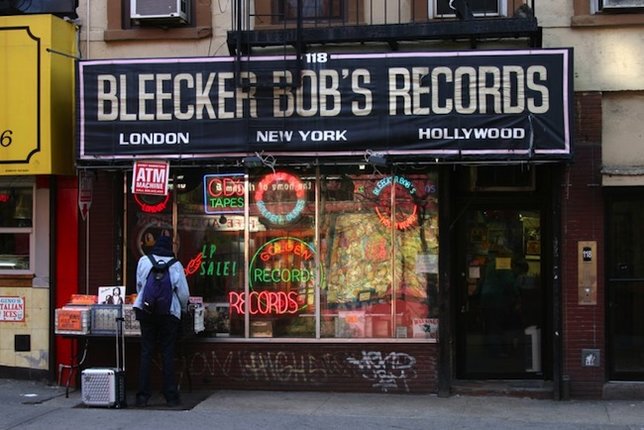
What was the first punk show you ever went to see?
It was a New Year’s Eve show at the Rock Hotel with Broken Bones, Murphy’s Law, I think Circle Jerks, I can’t remember. I stood in the corner all night, scared shitless [laughs]. I remember seeing guys like [Murphy’s Law singer] Jimmy Gestapo and [Underdog bassist] Russ Iglay there, tearing up the pit. That was scary! It was an amazing show.
I’m sure you started going to a lot more shows after that.
Yes, exactly. I was going to a ton of Rock Hotel shows, back when I was on Jane Street. I also started going to CB’s a lot. I remember going to the record release show for Victim In Pain. I’m pretty sure that was the first show where I went into the pit [laughs]. I didn’t really know anyone there yet. I had met Mike Bullshit there, but not many other people at that point. But once I found out about the matinees at CB's, I was there every Sunday.
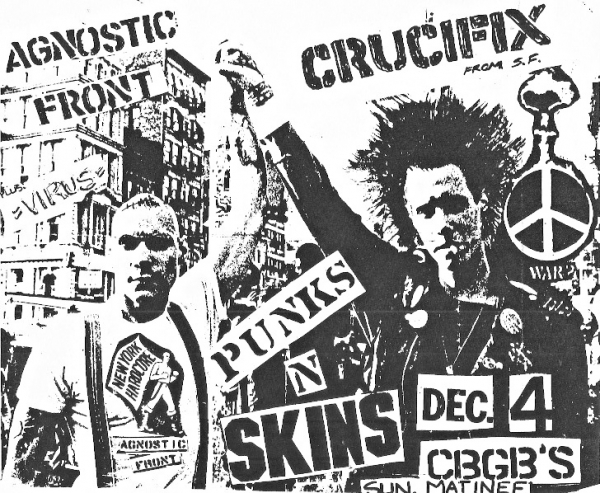
What was the first band you played in?
It’s funny, but about 15 years ago or so, Sick of it All were out here in LA on tour. I was trying to remember who played drums before Armand [Majidi], and I turn to Pete [Koller] and ask him, he then tells me, “You were.” So, before Sick of it All started, we used to jam in Pete’s basement and we called ourselves General Kaos [laughs].
How did you meet Pete Koller?
We met in school. By that point, I had been kicked out of Holy Cross and ended up at Francis Lewis High School [laughs]. That’s where I met Pete Koller, Rob Echeverria (Rest In Pieces, Biohazard, Helmet), Mike Smegma, basically, the Alleyway Crew. That was my senior year of high school.
SEE ALSO: 2014 interview with Rob Echeverria (Rest In Pieces, Biohazard, Helmet).
What was the next band you played in?
[Laughs] That probably would have been SFA, when Mike Bullshit was the singer. This would have been very early on in SFA. I was playing drums and all I did with them was a show at the Right Track Inn on Long Island. I quit on stage, right after our set [laughs].
What?!
Yeah, Mike had told us, “We’re playing a show!” I told him that we weren’t ready yet, but we did it anyway. So we played a 20-minute set, or whatever, and it was terrible [laughs]. So I quit right after we finished. I think Straight Ahead was also playing that day, because I’m pretty sure I was borrowing Tommy Carroll’s drums. I want to say that was 1985, but I could be wrong.
It sounds like you were really getting into the mix at that point.
I was going to shows all the time and meeting lots of people. I started hanging out with [bassist] Chuck Valle a lot. He was in Ludichrist at the time, but later on went to Murphy’s Law, which I’m sure you know. Anyway, I got close with the Gorilla Biscuits guys. I was at their first show, which was in a basement in Astoria.
So the Astoria connection probably led to you joining Token Entry.
Yeah, well, one day in 1986, I was skating at the Pyramids [a famous skate spot in Queens] and Ernie [Parada] and Johnny [Steigerwald] come by and tell me that they’re playing CB’s that coming Sunday. I ended up going, and that was the first time I ever saw Token Entry. They had just released their 7” [Ready Or Not... Here We Come!!]. I remember watching the first three songs and then leaving [laughs]. I thought it was terrible [laughs].
Damn! Not a great first impression.
No, but they ended up going out on tour, which was a big deal for a hardcore band during that time. Anyway, they come back from tour and Anthony [Comunale] ends up leaving the band. Now, I don’t know which story you want to believe, but Anthony was no longer in the band. At that point, I was working as a roadie for Ludichrist, going all over the East Coast, every chance I had. So, Chuck Valle runs into Ernie and he tells him that Token Entry is looking for a singer. Ernie asks about me, and Chuck says, “I don’t know if he could sing or not, but he can imitate any singer in the scene.” [Laughs] So that got me the audition.
[Laughing] Auditions for hardcore bands are not common.
[Laughs] No, but that’s what happened. I went to Don Fury’s studio and the band had an open audition type of thing. I didn’t know if you know Squirm, but he was a guy from Long Island who was part of the scene who also tried out for Token Entry that day. Anyway, I tried out after him, and the rest is history.
SEE ALSO: 2016 interview with Don Fury (Producer: Judge, Quicksand, Inside Out)
What songs did you do in the audition?
I think we did "Antidote" and "Psycho."
By the way, do you know how they came up with the band name Token Entry? I think it’s brilliant, especially since the logo already existed.
I think that was a band decision before I joined. A collective thing, but I’m not sure. Yeah, it was great because we had free advertising all over NYC [laughs].
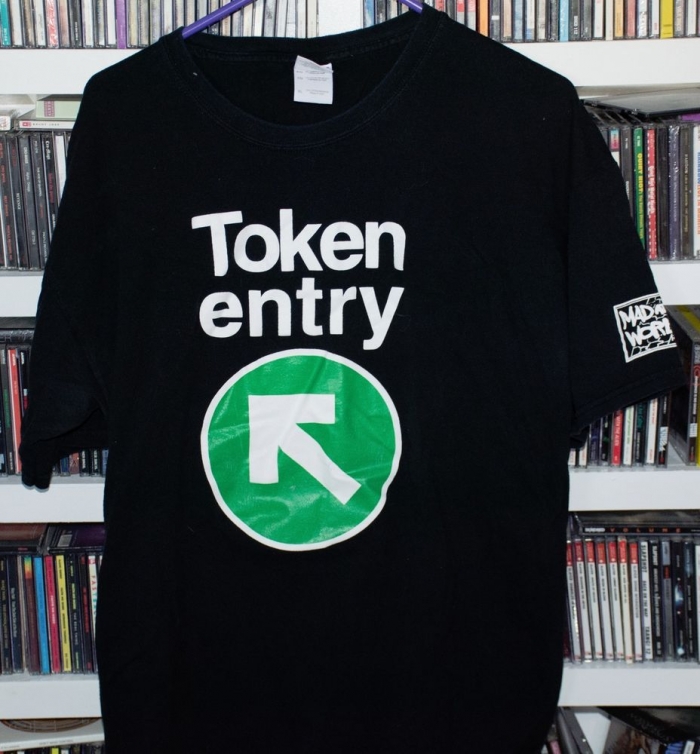
What was your first show as the singer of Token Entry?
The first time I played with Token Entry was in Philadelphia, at a basement of a frat house, which I think was called The Crypt. Underdog was playing and Ernie was filling in on drums. So, the rest of Token Entry was there to support him and the Underdog guys. Anyway, since we were all there, we ended up playing a few songs together as Token Entry. That was the first time I ever sang on stage.
This was during the time when many musicians were claiming edge. Did you ever consider yourself straight edge, especially back then?
I probably went through some phases were I called myself straight edge. In retrospect, it’s always been safer to say that I’m straight, and I have been my whole life. I have never been drunk or high, ever. For me, as I got older and thought of it more, saying that I was straight edge meant somehow meant that my opinion was better than, whatever, fill in the blank. I don’t feel that way. Look, I’m old, I take prescription drugs [laughs]. I’m not talking about medicinal marijuana either. I’ve had drinks, but I have never been drunk in my life. I can’t stand the taste of alcohol. As far as getting high, I tried pot twice in high school. I remember smoking a joint with a friend while watching Sesame Street. I turned to him and asked, “Do you feel anything? Cause I don’t.” I remember thinking to myself, “I don’t need this.”
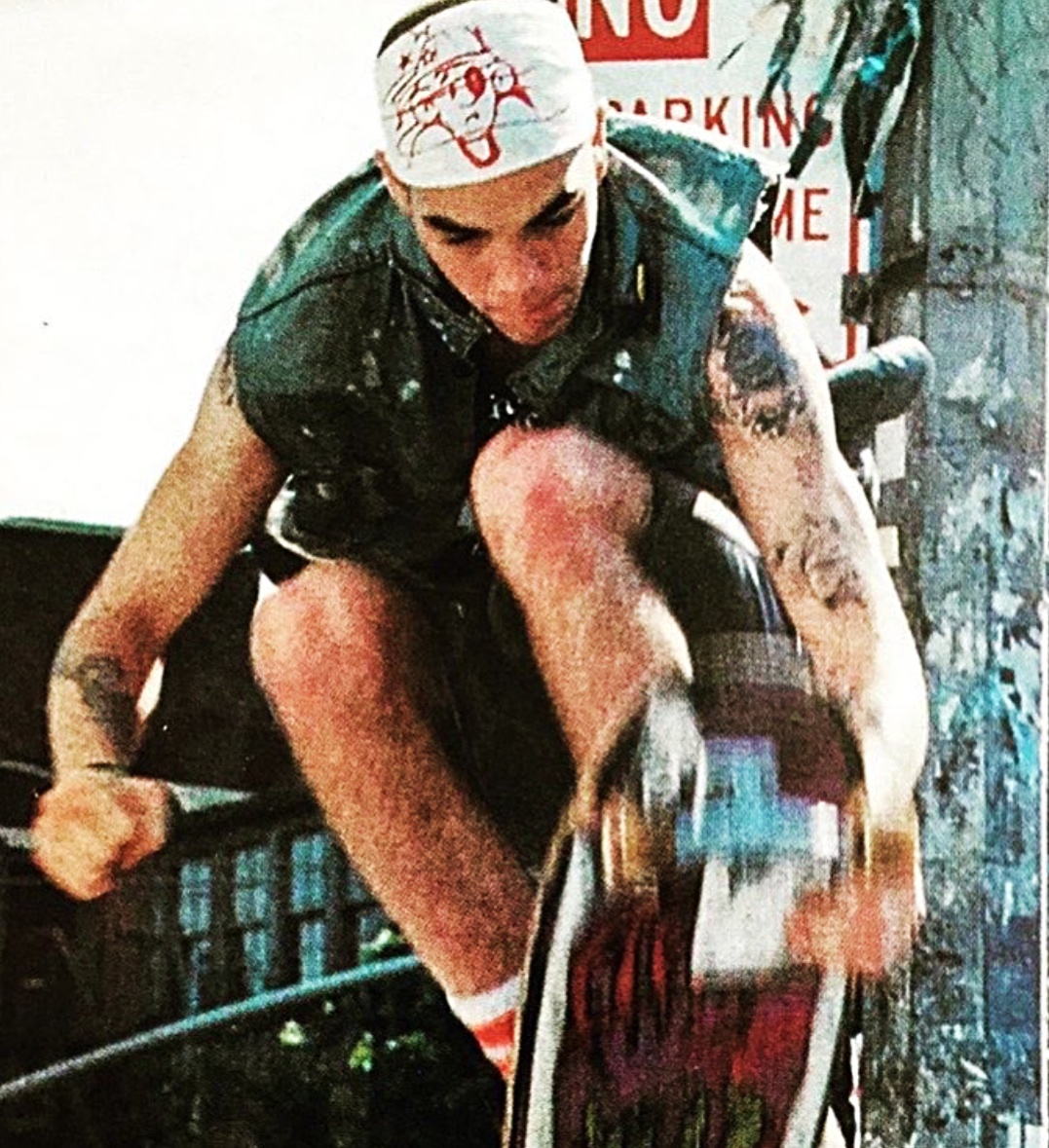
How did Token Entry end up working with Positive Force Records, the label owned by Kevin Seconds of 7 Seconds?
When the band was on tour with Anthony singing, they met Kevin Seconds. They kept that friendship going, and when I ended up joining, we would all go out to see 7 Seconds any time they played NYC. Most of the time, we would even jump on stage, get on their gear, and play a few songs. That was always fun. Just like the Underdog show I just mentioned.
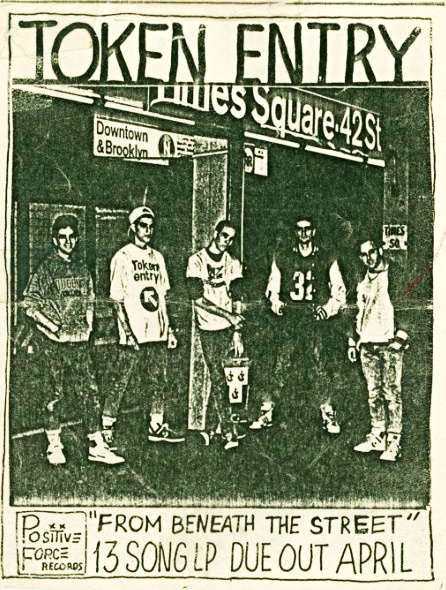
That leads us to From Beneath the Streets, the first Token Entry full-length. Since you joined around the time of the album sessions, did you get to contribute any writing on that one?
No, that was all written already by the time I joined the band.
Did the band get to tour the album at all, and what was the chemistry like within the band at that point? Were you guys all getting along?
All we did was some East Coast stuff. We never went far. Yeah, we were getting along great. Literally, we were always together. No one in the band ever went out to see a show without the rest of us with them.
So what happened between the first album and the next one, Jaybird? How did you get the deal with Hawker Records, which was an imprint of Roadrunner Records?
That was because of John Bello. He was working at Roadrunner and then started Hawker under that. I don't remember how it all went about, with the deal, and all that stuff. We all had a hand in the business decisions for the band, but we often deferred to Mickey Neal, our guitarist, because was older than all of us. I would say he was a good 7-8 years older than us. I was never quite sure how old he really was. It was one of those things, "Well, yeah, how old is Mickey?" [Laughs] But we definitely leaned on him. He worked at Steinway & Sons, you know, the piano company.
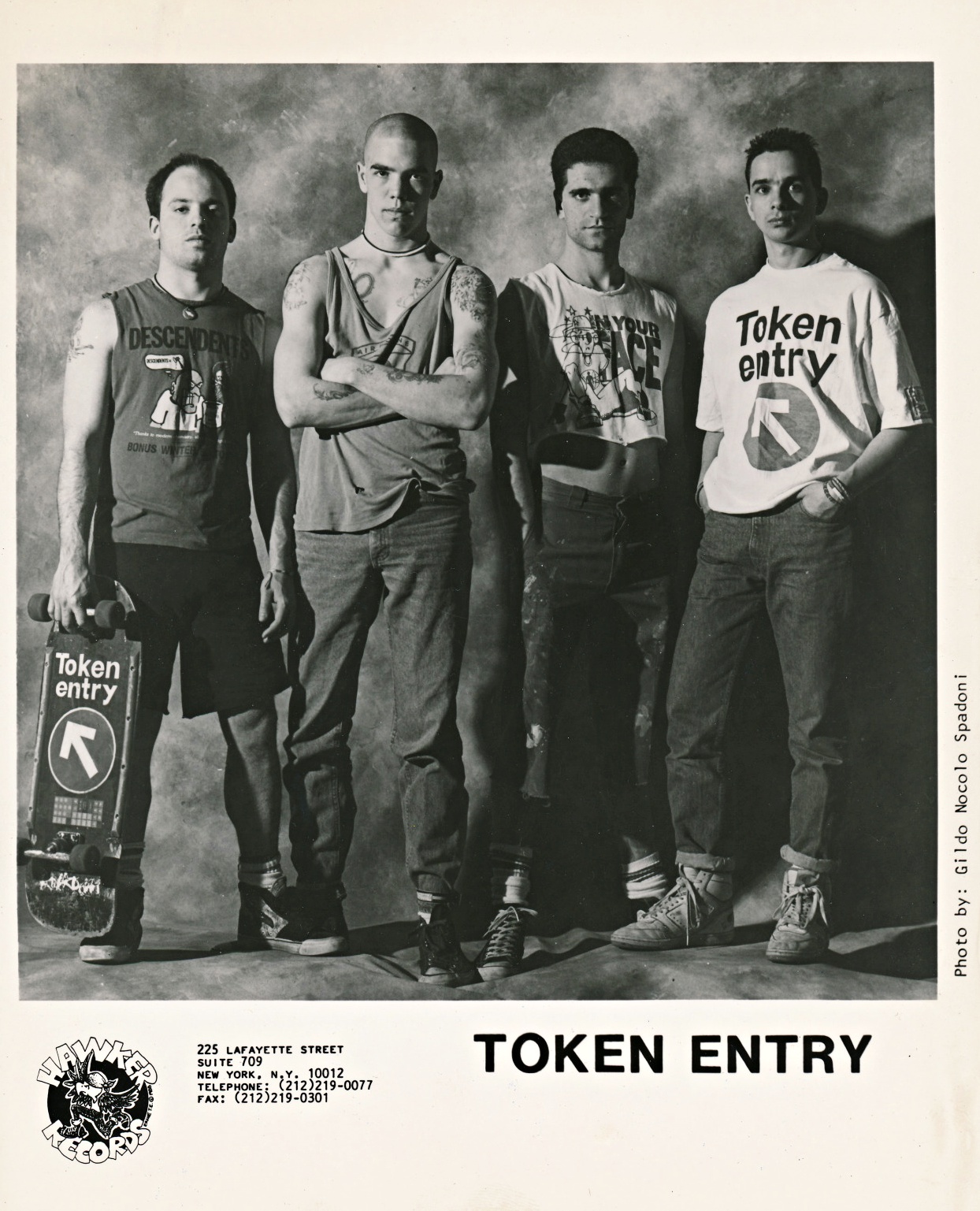
Being that Jaybird was your first chance to truly spread your wings as a singer and writer, and the fact that you had a label behind you with great distribution, did it feel like it was a huge moment for you guys?
Absolutely, yes. It all felt different. In 1988, bands were blowing up from our scene. Punk was done. It felt like it was hardcore's turn, especially New York hardcore. I think bands had that thought, or underlying feeling, "Yeah, we can do this."
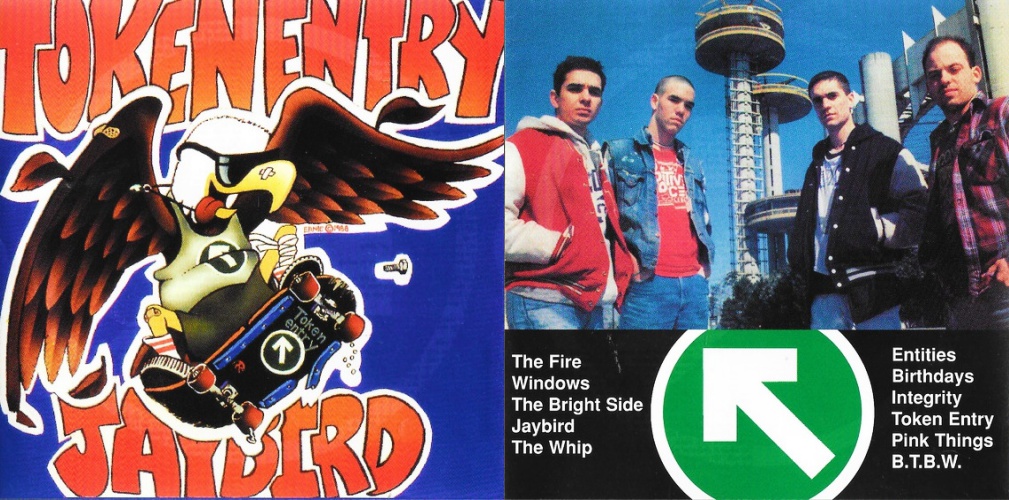
I'm sure the royalty checks came flying in!
[Laughs] I don't think I ever saw a royalty check from Roadrunner. I remember receiving one from Positive Force, but that's pretty much it. But I never joined a band to make money. Is it great to play to 3000 kids? Yes, it's awesome. But it also feels great to play to three people. I mean that.
I know you said you couldn't get a proper tour together for the previous album, so did that change for Jaybird?
No, and that ended up being the downfall for us. So, Jaybird comes out and it's getting good reviews, and is being received well by the public. We had a US tour booked, down the East Coast, across to California, and back to NYC. Inner-turmoil in the band happens, and in West Palm Beach, Florida, Mickey and Johnny tell us that they didn't want to do it anymore. They wanted to go home right away. Well, it was Johnny's van and we had no choice but to go home. We drove all the way back to NYC.
SEE ALSO: 5 Hardcore Bands from Hong Kong That Deserve Your Attention
Was it a matter of them not being able to adapt to the touring thing?
Honestly, I don't think that had anything to do with it. There were other issues involved that will remain with the parties mentioned. It was such a dissapointment because the album was doing well at that point.
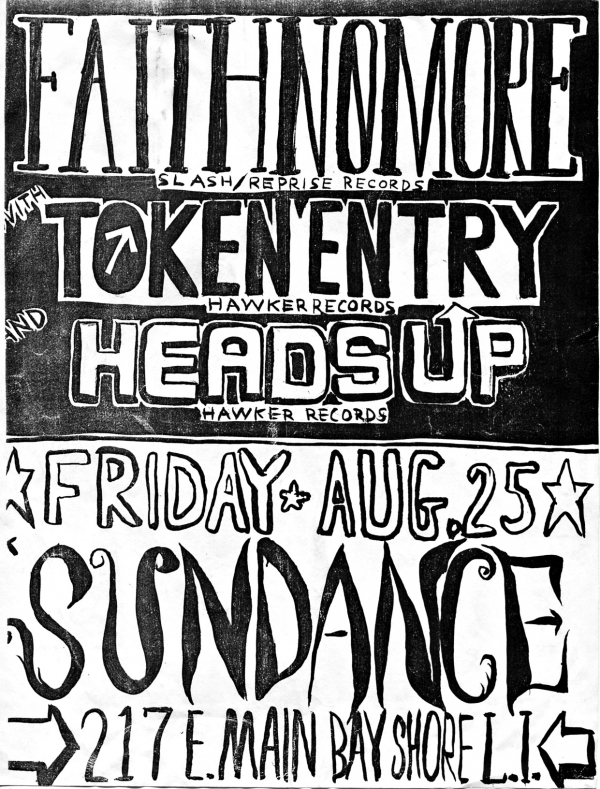
What happened once you got back to NYC?
The band was done, basically. Right before I had left for that tour, I was supposed to start working in the electrician's union, in Local 3. I remember calling the union hall and telling them that I couldn't start when they wanted me to, but that I would be back in two months. They were like, "Well, there's no guarantee your job will be here." So, I took the chance and went out on the tour. Here I was two weeks later, so I had to beg them for my job back. Luckily, I got a break and started working as an electrician. For the next few years, that's what I did. I want to say that probably eight months later, Ernie and I decided to start the band up again.
What was that process of reforming Token Entry like after losing all of that momentum?
It was definitely hard. It was a struggle after we started it up again. We still had the record deal, but it's hard to come back from something like we did, you know, choosing sides after we had the trouble within the band. It was hard to forget what had happened. We got a couple of new guys in the band: [guitarist] Richie Acam and my old friend from Holy Cross, [bassist] Matt Citarella. They weren't the first two guys we had. Previous to them, let's see... we had a guy named Mikey Peahead playing bass. I think we had three guitarists before Richie.
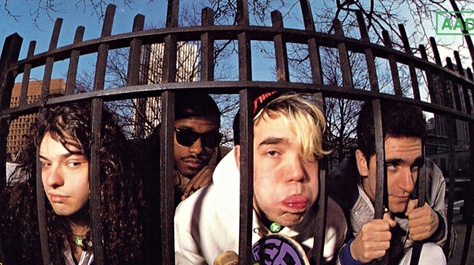
The next Token Entry album was 1990's Weight of the World. That record saw you guys take a stylistic shift, introducing funk elements to your songwriting, and getting away from the more traditional hardcore of the prior releases. To say it was met with hostility from your fans would be an understatement.
Speaking for myself here, I wasn't really happy with the direction the band went in, as far as the whole funk sound. But I was happy that I was playing music.
Where did that funk direction Token Entry went in come from?
You know, people being easily swayed. The Red Hot Chili Peppers were getting huge. We weren't the only band doing that kind of style. 24-7 Spyz was another one. Fishbone, Heads Up. I dug a lot of those bands. But yeah, the sound just happened from the influences, it wasn't like we sat down and planned it. I don't have a problem with a band progressing, but with us, I wasn't happy with the change. It wasn't for me. But like I said, I was happy. It was either play in the band, or stay home working a regular job and be miserable like my older brothers were at the time. We were also still playing the older stuff when we did shows.
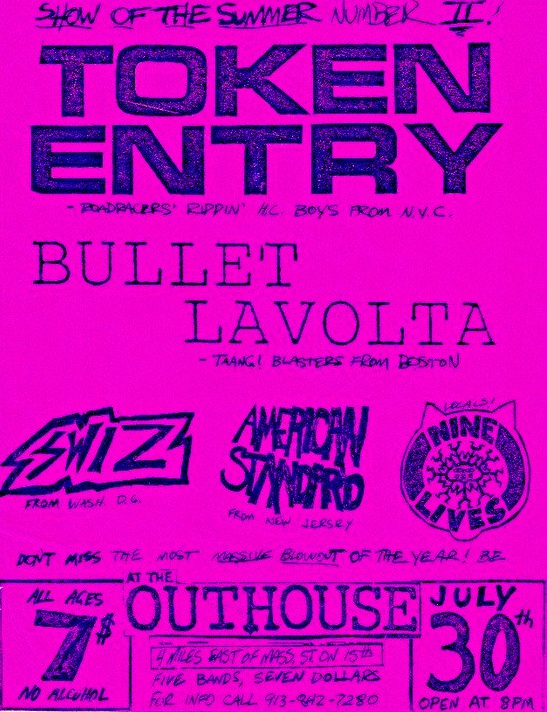
Again, I don't think you did a full tour in support of Weight of the World. It was almost like Token Entry was cursed on the touring front.
We were supposed to tour Europe for that one. The first show was going to be in Cologne, Germany. January 19, 1991 was our flight date. We had the tickets, everything was done and ready to go. On the 17th, the US started dropping bombs for Operation Desert Storm. At the time, our bassist was still Matt Citarella and his brother, Mike, had taken over on guitar, so Richie was no longer in the band. The Citarella brothers called me up and said that they were not going to go on the tour. This was two days before we were supposed to fly to Europe. They were scared. I said, "We're not going anywhere near the desert!" But they were out. Anyway, two days notice was not enough time to find replacements and make it work.
Was that the end of Token Entry?
Yeah, once the Citarella brothers backed out of the tour, Ernie and I decided it was time to put it to sleep. It was obvious that it wasn't meant to be for us. So that was it. I couldn't believe it. I was crushed. That was in the beginning of 1991.
SEE ALSO: Meet the Most Dedicated Hardcore, Punk, and Heavy Metal Record Collectors
In an interesting twist, after Token Entry ended, you ended up touring for a living. Tell me about that part of your life.
I had quit the union after the band broke up. I was a miserable fuck. Let me go back a bit. I remember Quicksand or Black Train Jack, maybe both, were playing a show at Wetlands. I ran into the Bouncing Souls guy there and they invited me to a party that they were going to have at their house in New Jersey the following weekend. I remember that I was working at JFK airport and I was driving home to my little basement apartment in Maspeth, Queens, and thinking to myself, "Do I want to go to the party? If I do, I have to turn right over here." It was literally one of those kind of moments. I had to do something because I was miserable. So, I went to the party.
Two months later, I quit the union and moved to New Jersey to live with the Bouncing Souls guys. I started working as a stage manager at [classic NJ music venue] City Gardens. I remember my friend, Jim Norton, who was a guitar tech, asked me if I could tune drums, and I told him that I could. He then asked me if I wanted to be a drum tech for a Monster Magnet and Raging Slab tour that was coming up. I was like, "Um, yeah!" It was the greatest time ever.
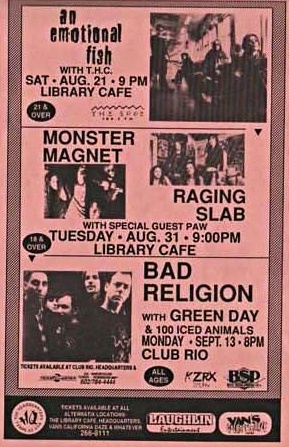
You toured as a tech for many years. Who were some of the bands you went out with? I know you were with Green Day for a long time.
I was with Green Day from July of 1994 to September of 2004. I started with them right after Dookie had come out. I did the last tour they ever did in the bookmobile. The first show I did with them was at Slim's in San Francisco. We eventually jumped to the Lollapalooza tour. It was fun to see them blow up. I was so happy for them.
You got married and had two girls during your tour tech days. Is that what lead to you wanting to stay home and change careers again?
The decision for me to stay home was actually my ex-wife's [laughs]. She was tired of being a single parent and wanted me to be home more. I couldn't blame her for that. So, in 2010, I flew home from a tour I had just finished with Band of Horses, and that was the last tour I've been on. I started doing local work as a stagehand. I would get gigs here and there from Goldenvoice, etc. I knew I needed something with more stability, so I ended up going back to the electrician's union, oddly enough [laughs]. It was tough because I had to go back in and start from the bottom as an apprentice again, and I was 45-years-old at that point. It was humbling.
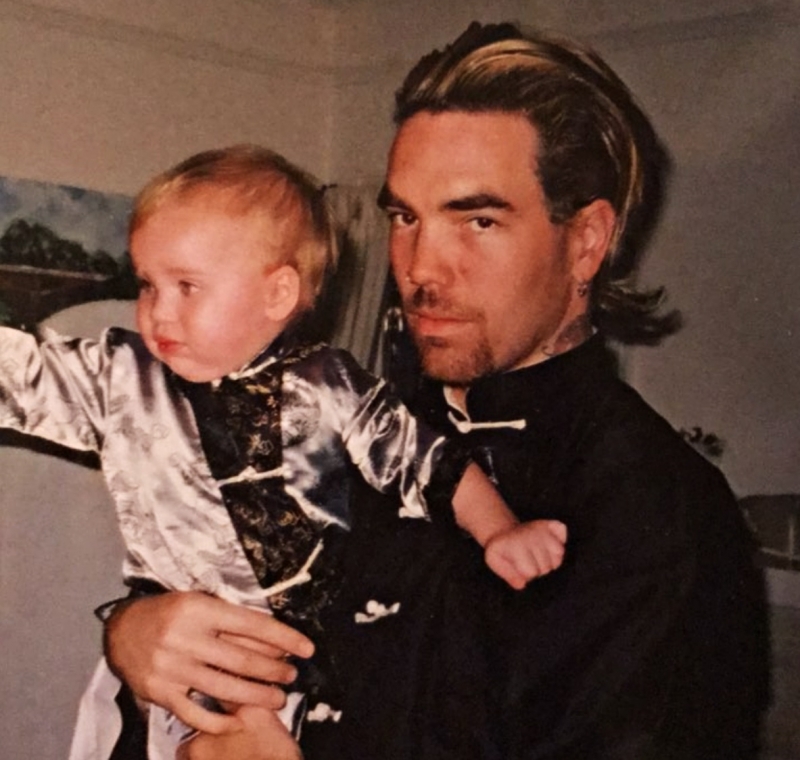
Do you miss touring?
I would go back out in a heartbeat. I like electrical work, but I love touring. My daughters are 15 and 17 now. If someone were to call me now and ask me to go out and do a 6-week tour, I would jump on it. I'm a member in good standing in my union, so I could come and go, as long as I pay my union dues.
That brings us to Let Rage! Tell me a bit about the band and what you have coming up.
We techinally started Let Rage! two years ago. We were on our way to Punk Rock Bowling when we started the band, in the car. Deana [Montaya] was driving, and she says to me that she plays bass, so I said, "Let's start a band!" [Laughs] Over the course of the next 24 hours, we had the lineup completed. It took us a while to get things going, but we're doing well now, playing shows and practicing a lot.
It must be a lot of fun to get back out there and play shows. I know I miss it.
I'm having so much fun with this band, yeah. We're going to be opening for Dag Nasty coming up soon, so we're really excited for that. Again, it makes me happy. It fills a part of my spirit that keeps me sane.
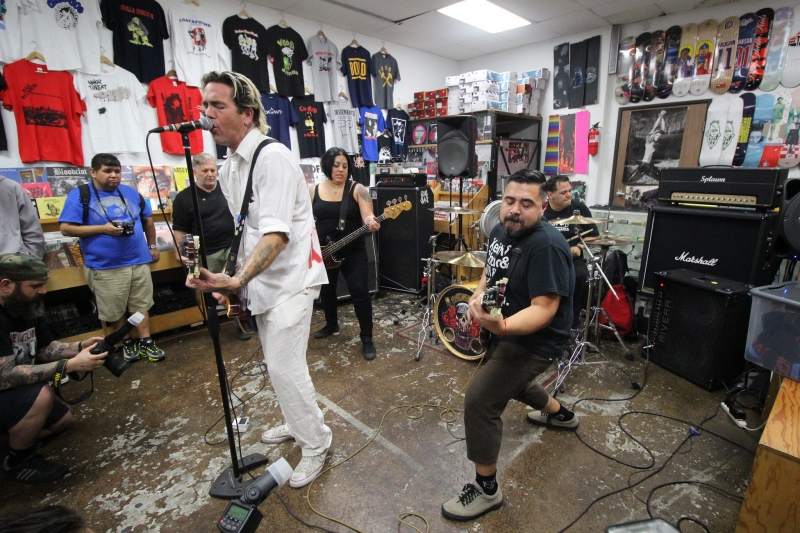
Since you guys are around the same age and come from the same scene and era, do you know [Dag Nasty guitarist] Brian Baker?
Yeah, I know him, and as soon as I found out about the shows, I wrote him and said, "Hey Brian, if there's any chance, we would love to open one, if not all, of the local shows here." [Laughs] He said, "Message received! Will forward to management." Anyway, it's going to be great to see everyone.
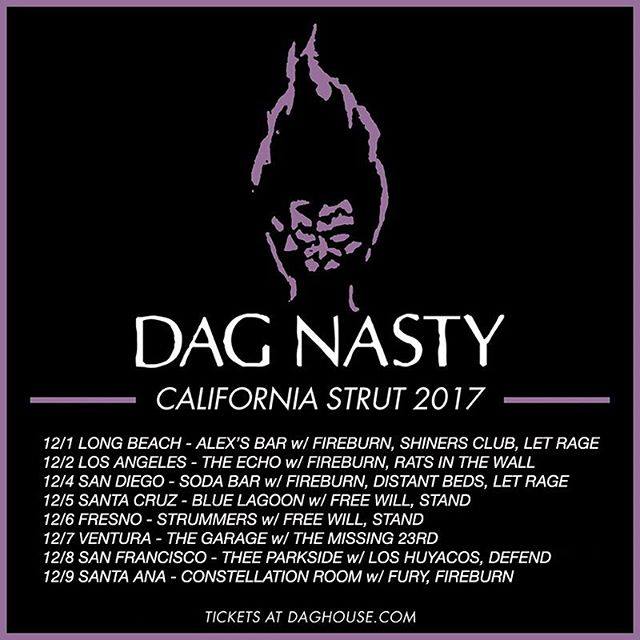
Token Entry also gets together for the occasional show. I wasn't there, but the photos and video footage from this year's Black N' Blue Bowl in NYC looked crazy!
Yeah, it was crazy! I have so much fun playing those old songs. The crowd was really great.
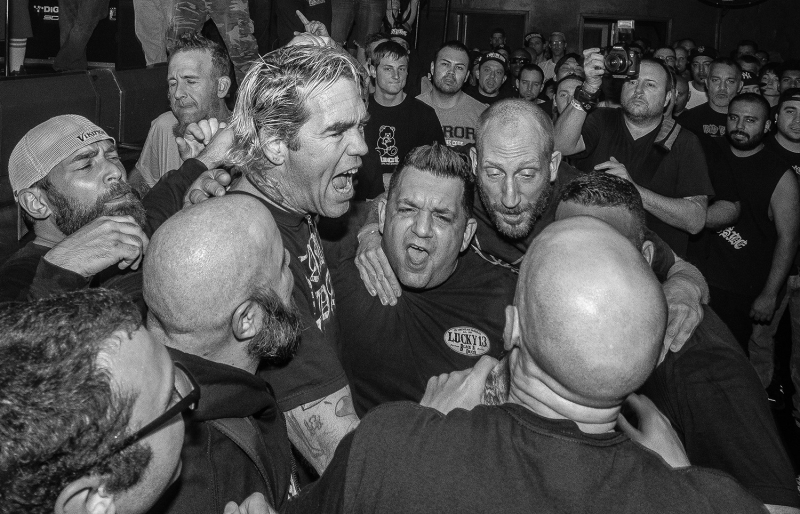
It sounds like everything has come full circle for you.
It definitely has, Carlos.
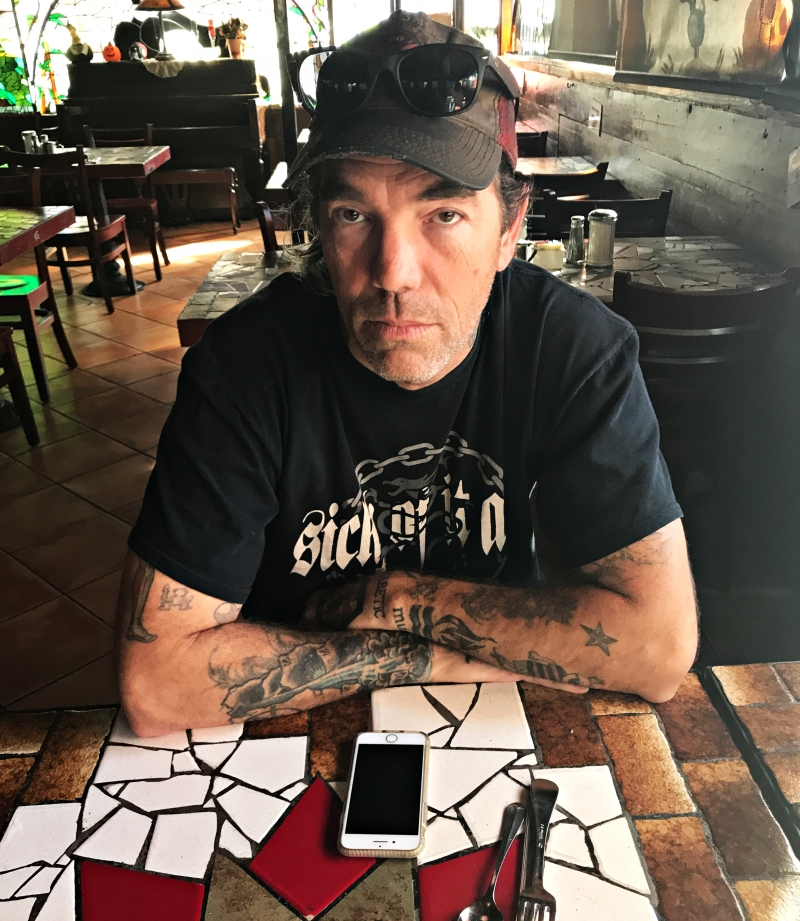
***
Follow Let Rage! on Bandcamp, Facebook, and Instagram.
Tagged: let rage, token entry

